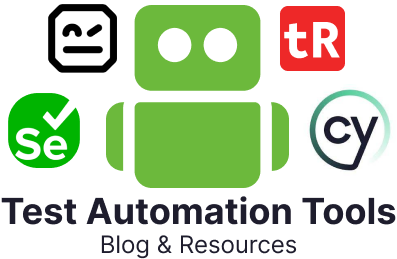
One of the relatively newer names in the software testing world, Mabl has quickly risen to prominence in this space with a focus on intelligent test automation.
However, this relatively new name in the market may not be right for every team. To help you better assess whether or not Mabl is a good fit for your needs, here is a general overview of Mabl, along with pros and cons, and some key highlights from consumer reviews.
General overview of Mabl
One of the newer names in the software testing market, Mabl is a SaaS test automation platform that aims to address challenges with speed, coverage, and reliability in software testing. To accomplish this goal, Mabl sports a wide range of features that include auto-healing, low-code test writing tools, and a broad support for integrations with common tools like Jira, GitHub, GitLab, Bitbucket, Postman and more. Mabl also includes accessibility testing among its features, which may appeal to teams aiming to ensure accessibility is well supported within its software projects.
Mabl packages all of its features into a single, user-friendly platform with the purpose of eliminating the need for managing infrastructure and frameworks.
When choosing Mabl, most customers are attracted to the scalability and efficiency gains provided by its SaaS and machine learning-based approach to solving the test automation needs of software teams.
Though it’s a relatively new name on the market, Mabl has still been around for years and considered a mature product. With more than $76 million in total funding historically, it is also a well-financed venture and headquartered in tech-savvy Boston.
- Mabl CLI
- A headless local runner
- Branching and versioning
- Support for importing from Selenium
- Unlimited parallel tests
- An API for deployments events
- An API for execution results
- CI/CD integrations native to Mabl
- Reusable tests and DDT
- Email and PDF testing
- Auto-healing powered by AI
- Cross-browser testing
- An automatic link crawler
- Visual change detection
- Real user behavior data collection
- Test coverage reporting
Pricing
Pricing for Mabl requires contacting the sales team to get a quote, though there is a free trial available.
- Startup includes: support for Chrome and Firefox, CI/CD pipeline integration, and unlimited headless CI runs
- Growth includes: all features from the Startup plan, support for Internet Explorer and Safari, mobile testing, accessibility testing, and three months of data retention
- Enterprise includes: all features included in the Growth plan, import/export with Selenium, API testing, PDF testing, email testing, priority support, and custom legal terms
The positive feedback about Mabl
- Easy to use and easy to get started with, particularly for less technical team members
- Easier and faster in a lot of cases compared to using Selenium
- Does not require a lot of programming knowledge to start writing test scripts
- Self-healing tests and machine learning to avoid needing to update locators
- Record and playback is easy to take further into more advanced assertions
- Test failure investigation includes detailed screenshots and HAR captures
- Tutorials, Slack community, and customer support are available to help
- Supports cross-browser and mobile testing
The negative feedback about Mabl
- Tests may execute later than expected in some cases
- Some customers have reported issues with UI elements like dropdowns, interactive maps, etc.
- Overall test suites may run slower than Selenium-written test suites
- Intelligent automation only supports record and playback tests
- Iterations are not fully covered by the functionality of the tool, though iterations are possible to accomplish via a Javascript snippet alternative
- No open source version
Conclusion
Mabl brings a lot of valuable features and solutions to the software test automation space, but whether or not it’s a good fit for your team is worth spending some time to consider.
For example, if your team is hoping to address testing needs by leveraging a lot of non-technical or lightly technical team members, Mabl may be a great option since its tools cater to this crowd.
However, if your team is highly technical and will likely stay that way, you may not find the benefits of those user-friendly tools as valuable as the specificity you gain from coding tests directly.
When evaluating Mabl, your team may also want to consider some other similar solutions in the market, such as testRigor (has an open-source version), Tricentis Tosca, Browserstack, Testim, and other similar products.

